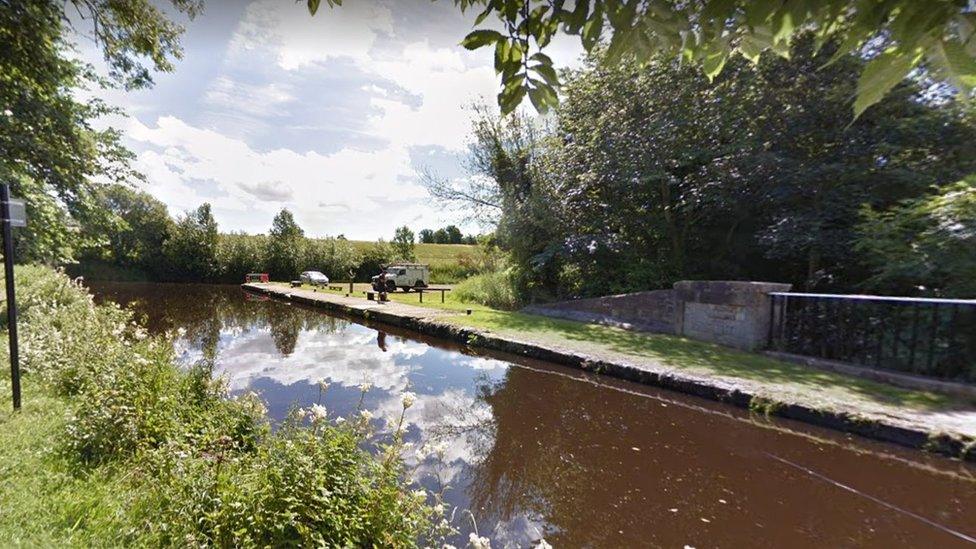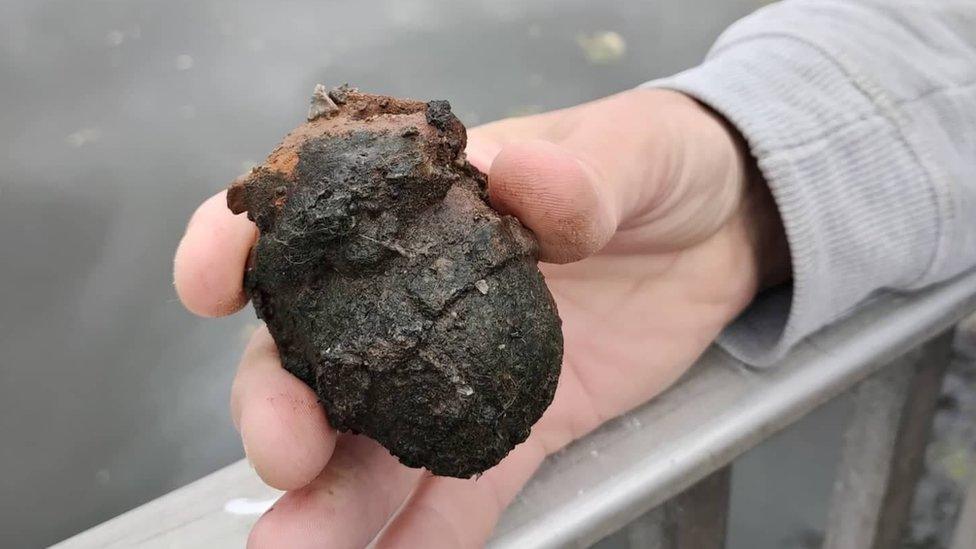Magnet fishing allowed on Scotland's canals
- Published

Magnet fishing in Scotland's canals will now have official approval
Magnet fishing - where people hunt for metal submerged in canals and rivers - is to be allowed in Scotland's canals for the first time.
The pastime increased in popularity in Scotland during last year's lockdown.
However, Saturday will be the first time it is officially permitted in a Scottish canal.
The national body, Official Magnet Fishing Scotland, has been granted permission for members to "fish" in Edinburgh.
The permission was granted by Historic Environment Scotland, which said further applications were being submitted for Inverness and Glasgow in the months ahead.
Canals are designated as scheduled monuments in Scotland, in recognition of their historical importance and unauthorised magnet fishing could potentially lead to a fine of up to £50,000.

What is magnet fishing?

Magnet fishers sometimes retrieve unusual objects such as this WW1 grenade found in Leicester
Magnet fishers use a strong magnet on the end of a rope to trawl rivers, canals and lakes for metal objects
They pull out scrap metal and discarded rubbish but also may find tools, keys, money and jewellery
Sometimes guns, bombs and stolen property is found and Army bomb disposal teams are regularly called out, according to the Ministry of Defence.

Catherine Topley, Scottish Canals chief executive, said she was "delighted" to allow "safe, responsible and accessible magnet fishing".
"Magnet fishing will have a positive impact on our network and this activity will help our operations staff ensure that our canals remain positive green and blue spaces for the people of Scotland and navigable for our boating customers."
The UK's first magnet fishing agreement was signed between Scottish Canals and Official Magnet Fishing Scotland in December last year, external which set out safe working practices and waste disposal policies.
Calum Black, chairman of the group, said: "Over the last year magnet fishing has become hugely popular and the canal network has proven time and time again to be our members' destination of choice."